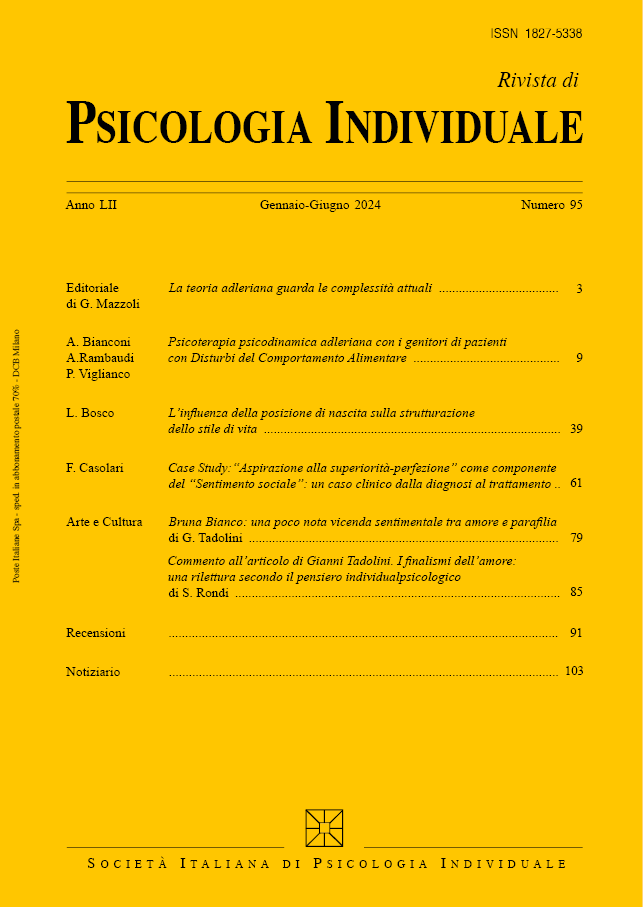“Anorexia nervosa and culture” (observations from a transcultural Adlerian perspective)
Keywords:
will to power, anorexia, famale and male roles, psychic hermaphroditism, rejection of the female role, masculine protest, need for dominationAbstract
The story of a girl who has not eaten for more than two years becomes the starting point for a broad reflection in which philosophical, scientific, and cultural elements intertwine to analyze the phenomenon and its possible implications, without neglecting to identify a psychogenic origin of mental anorexia. Changes in male and female roles can be reflected in the dynamics of anorexia as a refuge from psychic hermaphroditism. The analysis of socio-cultural changes in roles also offers a significant contribution to the reflection on individual experiences. In Adler's time, roles were markedly rigid, attributing an active role to males and a more passive role to females, and society also demanded that aesthetic and behavioral standards be respected in order to be chosen. Today, this demarcation is less marked, but both men and women encounter difficulties in adapting to the respective changes in their roles, and are making different attempts to deal with the resulting conflicts.
The text explores the case of Maria, whose complex relationship with her mother and female identity gives rise to self-destructive behaviors linked to food refusal. Through her rejection of the female role, Maria seeks heroic pseudo-fulfillment, freezing time, denying her sexuality, and assuming a central role in the family through rituals that reinforce her dominance. The rejection of her female identity is interpreted as an exaggeration of the will to power, an expression of the conflict between the desire for control and the fear of adult responsibilities, seeking refuge in an ambiguous image of wounded hermaphroditism. She finds comfort in this image, as it represents an undefined role that she perceives as more reassuring than the one she feels she is destined for






